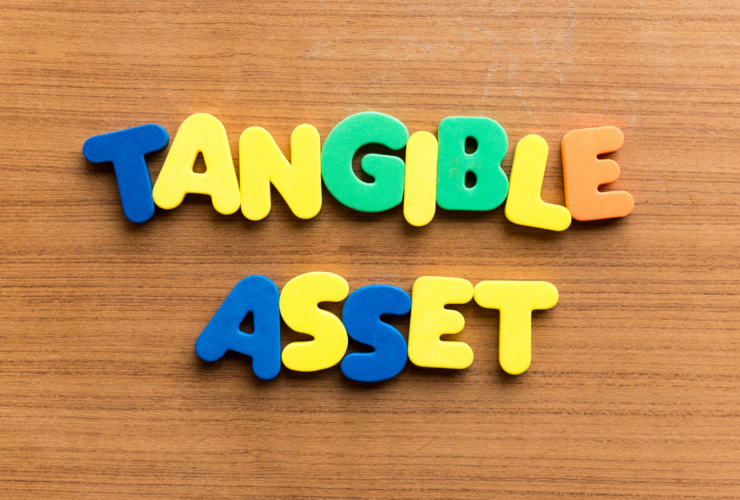Accredited and Sophisticated Investors: What’s The Difference?
The terms “accredited” and “sophisticated” investors are often used interchangeably, but there are some key factors that differentiate them. And it has nothing to do with how you dress…
It’s important to understand the differences because you’ll have different investment opportunities available to you, whether you’re considered an accredited or sophisticated investor. Continue reading to learn more about if you qualify as an accredited and/or sophisticated investor and the important SEC rules and regulations you need to know.
What is an accredited investor?
An accredited investor is a person or business that can participate in an investment not registered with the SEC if they meet at least one of the SEC’s requirements. Accredited investors are typically high-net-worth individuals and companies with the knowledge and experience to invest in non-traditional investments.
Accreditation status requires investors to meet one or more of the following criteria:
- Net worth exceeding $1 million (individually or jointly with a spouse), excluding the value of your primary residence
- Have an annual income exceeding $200,000 as an individual or $300,000 jointly for two years prior
- Be a partner, director, or executive officer for the company issuing the security for at least one year
- A private business entity that exceeds $5 million in assets under management (AUM)
- Hold a qualification, credential, or designation recognized by the SEC as an accredited investor
Most investment offerings will have minimal to no restrictions on the number of accredited investors. However, they will likely have exceptions for non-accredited investors as long as they are sophisticated.
How do you become an accredited investor?
There’s no certification or test you have to pass to become an accredited investor. So don’t worry, you won’t have to spend hours studying investment jargon.
All you have to do is meet at least one of the above SEC criteria. Then, the companies selling the investments will review your financial information to ensure you qualify as an accredited investor. Some examples of investments that require accredited investors include, but are not limited to:
- Venture capital
- Private equity
- Hedge funds
- Real estate crowdfunding
Learn more about these alternative investments here.
But what if you don’t meet the SEC requirements? Can non-accredited investors still invest?
Yes! Non-accredited investors can invest in any publicly traded stock, bond, or mutual fund. They can also invest in a publicly traded real estate investment trust (REIT) or alternatives as long as they still qualify as a sophisticated investor.
Also, as of May 2023, the House voted to require the SEC to set up an exam program that would certify investors as ‘accredited’. Known as the Equal Opportunity for All Investors Act of 2023, this bill will give more investors the opportunity to build wealth and tap into investments with otherwise high barriers to entry. The exam is not put in place yet, but this is a massive leap in the world of investing.
What does it mean to be a sophisticated investor?
Sophisticated investors are individuals who have experience in financial markets and are knowledgeable about market opportunities.
There’s no set definition for a sophisticated investor—as it varies from investment to investment—but you can ask yourself a couple of questions to see if you fit the bill:
1. Do you feel like you have enough knowledge and experience to analyze this investment?
2. Can you bear the loss of this investment?
If yes, you can be considered a sophisticated investor.
Experience extends to your financial team as well, such as a financial advisor or CPA. So, if you don’t personally have extensive investment knowledge but you partner with a well-versed CPA, that qualifies you as a sophisticated investor.
However, sophisticated investors may have access to some of the same unregistered securities as accredited investors, but there are some limitations that investors should be aware of.
What you need to know about SEC rules and regulations
The rules and regulations of the SEC can get a little hairy, but we’re here to make it as simple as possible. Regulation D with the SEC defines the rules by which a company can make private offerings available.
Hedgehog Investments falls into Rule 506(b) of Regulation D, which outlines the rules that companies need to follow to sell securities in a private offering. Under Rule 506(b), a general partner can raise an unlimited amount of money as long as they don’t publicly advertise—such as running TV or radio ads.
So, who can invest in a 506(b) Reg D offering? A 506(b) investment is restricted to working with accredited and/or sophisticated investors. So, this type of investment is not available to nonaccredited investors unless they qualify as sophisticated.
Invest smarter with Hedgehog Investments
Remember that whether you are a non-accredited, accredited, or sophisticated investor, no investment is without risk. To mitigate risk, it’s critical to research the investment thoroughly, understand your own risk tolerance, and choose investments that can help you reach your financial and retirement goals.
That’s our goal here at Hedgehog. To provide you with an alternative investment model that allows you to earn higher returns that are not market-dependent so you can achieve your investment goals. If you’re interested in learning more about our model at Hedgehog Investments, get in touch with our team here.
Disclaimer:
This material is intended for informational purposes only and should not be construed as legal or tax advice. Information here is not intended to replace the advice of your investment advisor or financial advisor. This information is not an offer or a solicitation to buy or sell securities. This information may have been compiled from third-party sources and is believed to be reliable. All investing involves risk, including the loss of principal.




